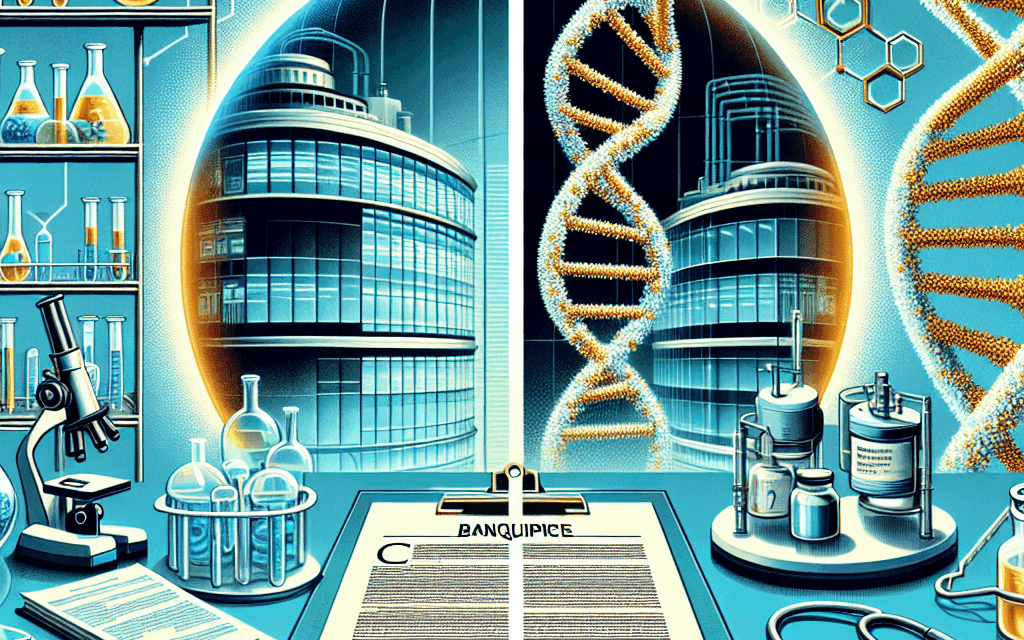Regeneron Acquires 23andMe in Bankruptcy Deal
The biotechnology landscape is ever-evolving, with mergers and acquisitions often reshaping the industry. One of the most significant recent developments is Regeneron Pharmaceuticals’ acquisition of 23andMe, a personal genomics and biotechnology company, which occurred under bankruptcy proceedings. This article delves into the implications of this acquisition, exploring the motivations behind it, the financial and operational challenges faced by 23andMe, and the potential future of personalized medicine in light of this deal.
The Background of 23andMe
Founded in 2006 by Anne Wojcicki, Linda Avey, and Paul Cusenza, 23andMe aimed to empower individuals with genetic information. The company gained fame for its direct-to-consumer genetic testing services, allowing users to learn about their ancestry and health risks based on their DNA. However, despite its initial success, 23andMe faced numerous challenges that ultimately led to its bankruptcy.
Initial Success and Market Position
23andMe was a pioneer in the field of personal genomics, offering a unique product that appealed to consumers’ curiosity about their genetic makeup. The company’s early success can be attributed to several factors:
- Innovative Product Offering: The company provided a simple saliva collection kit that could be mailed back for analysis, making genetic testing accessible to the general public.
- Consumer Engagement: 23andMe effectively utilized social media and marketing strategies to engage consumers, creating a community around genetic testing.
- Partnerships and Research: The company established partnerships with pharmaceutical companies, leveraging its genetic database for drug discovery and development.
By 2018, 23andMe had amassed over 5 million customers, making it one of the largest genetic databases in the world. However, this success was not sustainable, as the company faced increasing competition and regulatory scrutiny.
Challenges Leading to Bankruptcy
Despite its initial promise, 23andMe encountered several challenges that contributed to its financial decline:
- Regulatory Hurdles: The FDA imposed strict regulations on genetic testing, limiting the types of health information that could be provided to consumers.
- Market Saturation: The rise of competitors offering similar services diluted 23andMe’s market share, leading to a decline in revenue.
- High Operational Costs: The costs associated with maintaining a large genetic database and conducting research were significant, straining the company’s finances.
By 2023, these challenges culminated in 23andMe filing for bankruptcy, prompting the need for a strategic acquisition to ensure its survival.
Regeneron Pharmaceuticals: A Strategic Acquisition
Regeneron Pharmaceuticals, known for its innovative drug development, recognized the potential of 23andMe’s genetic database and technology. The acquisition was not merely a financial transaction; it represented a strategic move to enhance Regeneron’s capabilities in personalized medicine.
Regeneron’s Business Model and Objectives
Regeneron has built a reputation for developing groundbreaking therapies, particularly in the fields of ophthalmology, immunology, and oncology. The company’s business model focuses on:
- Research and Development: Regeneron invests heavily in R&D, aiming to discover and develop new drugs that address unmet medical needs.
- Partnerships: The company collaborates with academic institutions and other biotech firms to leverage external expertise and resources.
- Personalized Medicine: Regeneron is committed to advancing personalized medicine, tailoring treatments based on individual genetic profiles.
By acquiring 23andMe, Regeneron aimed to integrate genetic insights into its drug development process, enhancing its ability to create targeted therapies.
Synergies Between Regeneron and 23andMe
The acquisition of 23andMe presents several synergies that could benefit both companies:
- Access to Genetic Data: Regeneron gains access to a vast repository of genetic data, which can be utilized to identify potential drug targets and biomarkers.
- Enhanced Research Capabilities: The integration of 23andMe’s technology can streamline Regeneron’s research processes, allowing for more efficient drug development.
- Consumer Engagement: 23andMe’s established consumer base provides Regeneron with a platform to engage patients in clinical trials and research studies.
These synergies position Regeneron to enhance its competitive edge in the biotechnology sector, particularly in personalized medicine.
The Financial Implications of the Acquisition
The financial aspects of the acquisition are critical to understanding its overall impact on both companies. Regeneron’s decision to acquire 23andMe during bankruptcy reflects a strategic approach to mitigate risks and capitalize on opportunities.
Valuation and Deal Structure
The valuation of 23andMe at the time of acquisition was significantly lower than its peak market capitalization. This decline was primarily due to the company’s financial struggles and the broader challenges facing the biotechnology sector. Regeneron’s acquisition deal included:
- Asset Purchase: Regeneron acquired key assets of 23andMe, including its genetic database and technology platforms.
- Debt Assumption: The deal involved assuming some of 23andMe’s existing debts, which Regeneron deemed manageable given its financial strength.
- Investment in R&D: Regeneron committed to investing in the continued development of 23andMe’s technology and research initiatives.
This strategic financial maneuver allowed Regeneron to acquire valuable assets at a fraction of their potential worth, positioning the company for future growth.
Impact on Regeneron’s Financial Health
While the acquisition presents opportunities, it also carries risks that could impact Regeneron’s financial health:
- Integration Costs: The costs associated with integrating 23andMe’s operations and technology could strain Regeneron’s resources in the short term.
- Market Reaction: Investors may react negatively to the acquisition if they perceive it as a distraction from Regeneron’s core business.
- Long-Term Returns: The success of the acquisition will depend on Regeneron’s ability to leverage 23andMe’s assets effectively to generate long-term returns.
Regeneron’s management will need to navigate these challenges carefully to ensure the acquisition contributes positively to the company’s overall financial performance.
The Future of Personalized Medicine
The acquisition of 23andMe by Regeneron has significant implications for the future of personalized medicine. As the healthcare landscape evolves, the integration of genetic data into clinical practice is becoming increasingly important.
Advancements in Genetic Research
The combination of Regeneron’s research capabilities and 23andMe’s genetic database is poised to drive advancements in genetic research:
- Identification of Genetic Markers: The collaboration can lead to the discovery of new genetic markers associated with diseases, enabling earlier diagnosis and targeted treatments.
- Drug Development: Regeneron can utilize genetic insights to develop drugs that are tailored to specific patient populations, improving efficacy and reducing side effects.
- Patient-Centric Approaches: The integration of genetic data into clinical practice can empower patients to make informed decisions about their healthcare.
These advancements have the potential to revolutionize the way diseases are treated, moving towards a more personalized approach to medicine.
Ethical Considerations and Data Privacy
As the use of genetic data in healthcare increases, ethical considerations and data privacy concerns become paramount:
- Informed Consent: Companies must ensure that consumers provide informed consent for the use of their genetic data in research and drug development.
- Data Security: Protecting sensitive genetic information from breaches is critical to maintaining consumer trust and compliance with regulations.
- Equity in Access: Ensuring equitable access to personalized medicine is essential to prevent disparities in healthcare outcomes.
Regeneron and 23andMe must navigate these ethical challenges carefully to foster trust and ensure the responsible use of genetic data.
Conclusion: A New Era for Biotechnology
The acquisition of 23andMe by Regeneron Pharmaceuticals marks a significant turning point in the biotechnology industry. By leveraging 23andMe’s genetic database and technology, Regeneron is poised to enhance its capabilities in personalized medicine, driving advancements in drug development and patient care.
While the acquisition presents challenges, including integration costs and ethical considerations, the potential benefits far outweigh the risks. As the healthcare landscape continues to evolve, the integration of genetic data into clinical practice will play a crucial role in shaping the future of medicine.
In summary, the Regeneron-23andMe acquisition is not just a financial transaction; it represents a strategic move towards a more personalized approach to healthcare, with the potential to transform the way diseases are diagnosed and treated. As we look to the future, the collaboration between these two companies could pave the way for groundbreaking advancements in biotechnology and personalized medicine.





